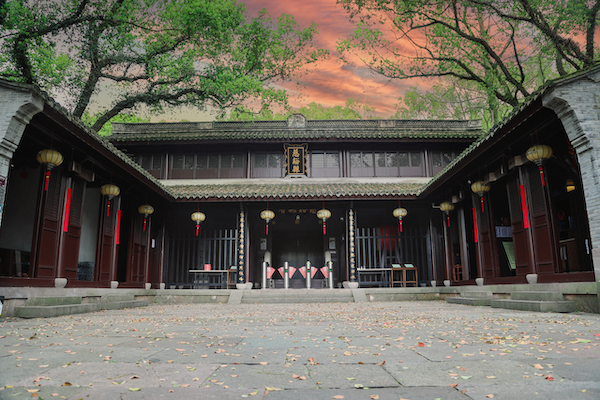PhD students explore the legacy of China's imperial exams in Ningbo

Cicheng yamen. [Photo/Tide News]
In Ningbo's Cicheng town, known as the "first ancient town in Jiangnan", Chinese and international PhD students from the University of Nottingham Ningbo China (UNNC) stepped into history through an immersive cultural event.
Dressed in traditional attire, they retraced the ancient imperial examination route — from xiangshi (provincial exam) to huishi (metropolitan exam) and dianshi (palace exam) — turning Cicheng's historic streets into a living classroom.
Their journey began at the Xiaoshiguan, a well-preserved examination hall from the Ming and Qing dynasties (1368–1911) that reflects Cicheng's rich educational heritage. "China's imperial exams were revolutionary for their fairness and merit-based selection," said Jeyhun, a PhD student from Turkmenistan.
At the Tang Dynasty (618–907) yamen (an ancient government office), the "candidates" engaged in quizzes about Cicheng's culture and the imperial examination system, identifying symbols like the crane badge for top-ranking civil officials. After several rounds, the UNNC yellow team won the zhuangyuan (top scholar) title.
The event concluded at the Confucian Temple, where the students posed for photos in their traditional clothing, capturing vivid moments that bridged time and culture.
The activity was an innovative mix of culture, youth engagement, and international exchange, showcasing how Ningbo's ancient towns can inspire global appreciation for Chinese traditions.

 Expats enjoy festive fun in Ningbo
Expats enjoy festive fun in Ningbo  Horse motifs in China's intangible cultural heritage
Horse motifs in China's intangible cultural heritage  International friends join Chinese New Year festivities in Ningbo
International friends join Chinese New Year festivities in Ningbo 


